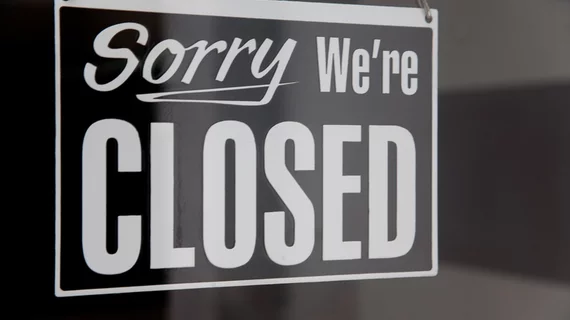Providers predict radiology practice closures if CMS fails to fix Medicare fee schedule
Providers are predicting possible practice closures if the Centers for Medicare & Medicaid Services fails to address looming cuts in the 2022 physician fee schedule.
With the calendar flipping in less than four months, CMS is set to increase wages for clinical labor staffers such as mammography technologists. But under balanced-budget requirements, rising spending in one place necessitates cuts elsewhere. Interventional radiologists and radiation oncologists—with high medical supply costs and lower spending on clinical labor positions—are slated to bear the brunt, and they’re not happy about it.
In a Wednesday letter to the federal agency, the Society of Interventional Radiologists highlighted 13% aggregate pay reductions across all IR treatments. Some services in office-based settings will sustain decreases of more than 20%.
“As a result, the profound cuts will negatively affect health equity in communities who have already been particularly hard hit by the COVID-19 pandemic,” society President Matthew Johnson, MD, a professor of radiology research at Indiana University’s School of Medicine, said in a statement. “We must protect patients’ access to that crucial care and prevent private practices from closing down, especially in underserved areas,” he added later.
In its own letter to CMS, the American Society for Radiation Oncology estimated the specialty will absorb $300 million in Medicare cuts Jan. 1, if the feds fail to act. Radiation oncologists are facing a double whammy of $140 million in reductions from the fee schedule, along with $160 million more from the controversial mandatory bundled payment model. Rates for certain breast and prostate cancer treatments would fall 13%, while advanced lung cancer offerings are expected to dip 22%.
“This double hit will be devastating to our patients and radiation oncology teams, endanger patient access to lifesaving treatment and threaten the viability of clinics still reeling from the COVID-19 pandemic,” ASTRO said Sept. 9. “We are confused and disappointed that these proposed policies stand in such sharp contrast to President Biden's goals to 'end cancer as we know it' and advance health equity,” it added.
SIR and others are urging CMS and Congress to “reverse the cuts,” suspend sequestration, extend a 3.75% pay bump enacted in late 2020, and either avoid labor pricing changes (or phase them in over four years). You can read the full interventional society letter here and ASTRO’s here.

